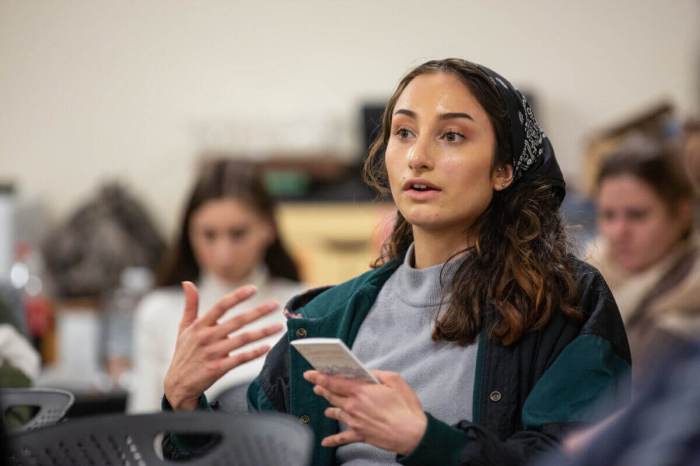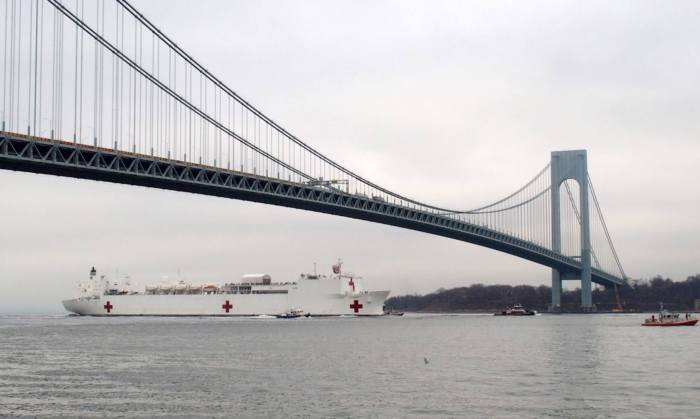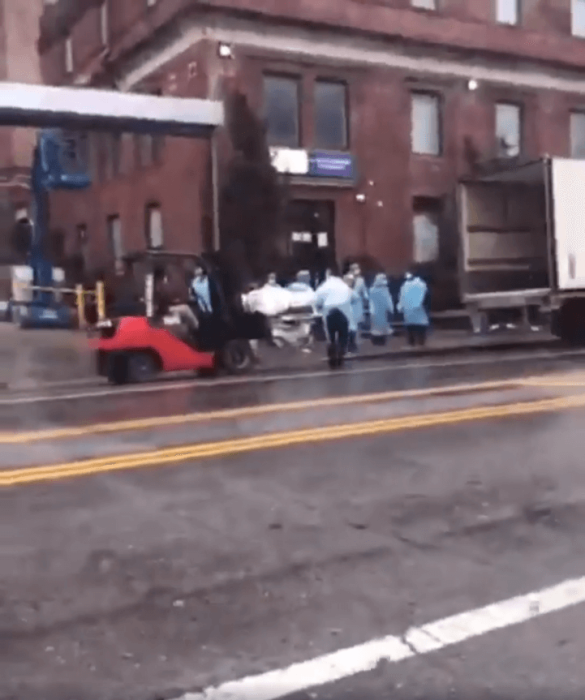Major crimes have fallen nearly 30 percent in the borough as Brooklynites take shelter indoors during the novel coronavirus outbreak.
The NYPD’s seven major crime categories — murder, rape, robbery, felony assault, burglary, grand larceny, and car theft — recorded 1,397 criminal infractions during the 28-day period that ended on April 12, marking a sizable decrease from the 1,989 recorded crimes during the same period last year.
Most substantially, there have been 67-percent less recorded rapes in Brooklyn, which have fallen from 57 to 19 — although NYPD brass speculate that some of the drop results from victims declining to file police reports, according to a department press release.
Grand larceny was the crime category with the highest drop in reported crimes, having gone from 828 to 407 over the 28-day timeframe — marking a 51-percent decline.
Three categories of major crimes, however, have seen an increase in Brooklyn during the pandemic compared with the same timeframe in 2019 — as murder has gone up from four to six, burglaries have risen from 222 to 256, and car thefts have climbed from 97 to 150.
And on top of affecting crime rates, the pandemic has also impacted the enforcement of laws, policing, and the court system.
On April 15, 6,274 uniformed NYPD officers — 17.3-percent of the entire police force — called out of work sick, and 4,080 members of the department had tested positive for the novel coronavirus.
Mayor Bill de Blasio, however, contended that officers are typically young, making them less susceptible to becoming fatally sick.
“The vast majority of patrol officers in the NYPD are younger and very healthy people,” he said at an April 6 press conference. “So, the extent they’ve been exposed to the virus, they’re coming back rapidly, they’re coming back after, you know, somewhere between a week and two weeks.”
Police have also been tasked with enforcing social distancing measures — such as making sure non-essential businesses have been closed, and people are not gathering in crowds — which de Blasio said was working to effectively prevent high-risk situations.
“I’ve talked to my Police Commissioner Dermot Shea and he says his officers are out there all over the city and they’re struck by how much people are following the rules,” Hizzoner said during an April 9 appearance on MSNBC. “And if anyone makes a mistake and you know, deviates from the rules, they are being warned and they actually start complying very quickly.
District Attorney Eric Gonzalez has also taken significant measures to avoid spreading the infection — including not prosecuting many low-level offenses. Since the crisis began, Brooklyn’s top cop has declined to prosecute around 300 cases, according to a Gonzalez spokesman.
For cases that do move forward, courts have gone to enormous lengths to avoid gathering people in person. Arraignments now take place over video conferences, and minimal staff are physically present in courthouses.
These video conference-based proceedings had initially been reserved only for pressing, emergency matters — however, Brooklyn’s legal eagles have begun expanding operations to some non-essential matters like plea deals, according to the DA spokesman.
The coronavirus pandemic has also effectively overshadowed a state-wide debate about New York’s recently enacted bail reform laws, which allowed many non-violent offenders to walk free with providing collateral when awaiting court dates.
Detractors had blamed the law for an uptick in crimes in early 2020, including Police Commissioner Dermot Shea, who claimed in a New York Times op-ed that the reforms “present a significant challenge to public safety.”
Supporters of the law brushed off the increase in crimes as anecdotal, and lauded the reforms for lowering statewide jail populations by nearly 30-percent after going into effect.
Set against the backdrop of the growing pandemic, state legislators gathered in early April to pass the upcoming fiscal year’s budget and included minor changes to the 2019 bail laws — including making some more crimes eligible for bail — but largely left the structure of the reforms in place.
Now, as the virus spreads throughout the country, authorities have temporarily released many inmates from jails and prisons — which have become hotbeds for the high-infections disease.























